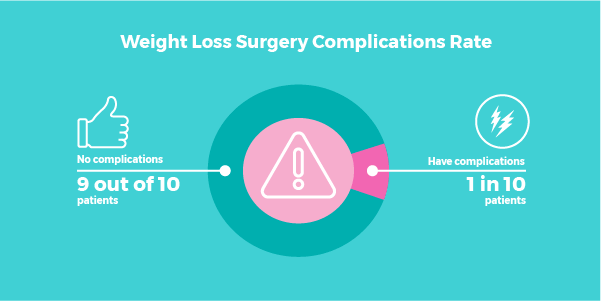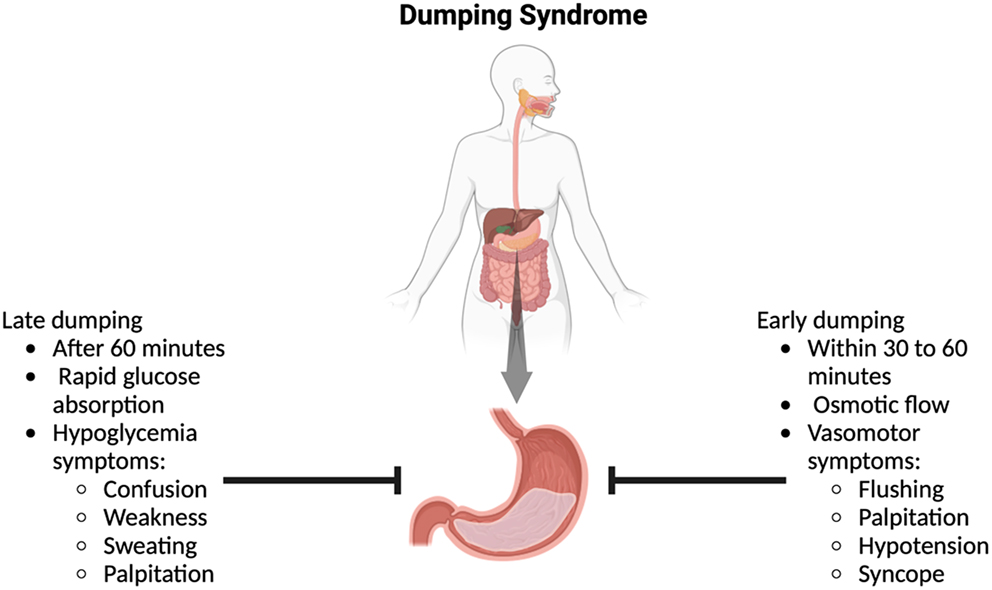Dumping syndrome, also known as rapid gastric emptying, is a condition that occurs when food moves too quickly from the stomach to the small intestine. This can lead to a variety of uncomfortable symptoms and may require medical attention in severe cases. Often abbreviated as DS, this condition is most commonly associated with individuals who have undergone certain types of stomach surgeries. Below, we will explore what dumping syndrome is, its causes, symptoms, and available treatment options.

What Is Dumping Syndrome?
Dumping syndrome is a disorder that affects the digestive system, particularly how the stomach processes food. Normally, the stomach takes time to break down food before gradually releasing it into the small intestine. In people with dumping syndrome, this process happens too quickly, leading to an imbalance in digestion and absorption. The condition can occur in two phases: early dumping and late dumping, each with its own set of symptoms.
Early Dumping Phase
- Occurs within 30 minutes to an hour after eating
- Characterized by symptoms like nausea, vomiting, abdominal cramps, and diarrhea
- Happens because undigested food draws fluid into the small intestine, causing discomfort
Late Dumping Phase
- Occurs one to three hours after eating
- Marked by symptoms such as weakness, sweating, dizziness, and rapid heartbeat
- Caused by a rapid rise and subsequent drop in blood sugar levels due to the quick absorption of carbohydrates
Causes of Dumping Syndrome
Dumping syndrome often arises as a complication of specific types of stomach surgeries. These procedures alter the structure or function of the stomach, making it difficult for the organ to regulate the movement of food properly. Below are some common causes of this condition:
Gastric Bypass Surgery
Gastric bypass surgery is a weight-loss procedure that reduces the size of the stomach and reroutes the digestive tract. This surgery can disrupt the normal flow of food, increasing the likelihood of dumping syndrome.
Gastrectomy
A gastrectomy involves the partial or complete removal of the stomach, often performed to treat stomach cancer or severe ulcers. Without a fully functioning stomach, food may pass too quickly into the small intestine.
Esophageal Surgery
Surgery on the esophagus, such as procedures to treat acid reflux or esophageal cancer, can also contribute to dumping syndrome by altering the way food moves through the digestive system.
Other Contributing Factors
- Consumption of high-sugar foods and beverages
- Eating large meals in a short amount of time
- Lack of proper dietary adjustments after surgery
Symptoms of Dumping Syndrome
The symptoms of dumping syndrome can vary depending on whether the individual is experiencing early dumping or late dumping. Both phases can be distressing and may significantly impact daily life if left untreated. Here is a detailed breakdown of the symptoms associated with each phase:
Early Dumping Symptoms
- Nausea and vomiting shortly after eating
- Bloating and abdominal cramps
- Diarrhea or urgent bowel movements
- A feeling of fullness even after consuming small amounts of food
Late Dumping Symptoms
- Sweating and flushing of the skin
- Rapid or irregular heartbeat
- Fatigue and weakness
- Dizziness or lightheadedness
- Mental confusion or difficulty concentrating
Treatment Options for Dumping Syndrome
Treating dumping syndrome typically involves a combination of dietary changes, lifestyle modifications, and, in some cases, medications. The goal of treatment is to manage symptoms and prevent complications. Below are some effective strategies for addressing this condition:
Dietary Adjustments
One of the most important steps in managing dumping syndrome is making changes to your diet. By modifying what and how you eat, you can reduce the severity of symptoms and improve your overall quality of life.
- Eat Smaller, More Frequent Meals: Instead of consuming three large meals a day, try eating five to six smaller meals spaced evenly throughout the day.
- Limit Sugary Foods: Avoid foods and beverages that are high in sugar, as they can exacerbate symptoms. Opt for complex carbohydrates like whole grains instead.
- Increase Protein and Fiber Intake: Incorporate more lean proteins and fiber-rich foods into your diet to slow down digestion and promote satiety.
- Avoid Liquids During Meals: Drinking fluids with meals can speed up gastric emptying. Instead, drink water or other liquids at least 30 minutes before or after eating.
Lifestyle Modifications
In addition to dietary changes, certain lifestyle adjustments can help alleviate symptoms of dumping syndrome:
- Chew Food Thoroughly: Taking the time to chew your food properly can aid digestion and reduce the risk of symptoms.
- Avoid Lying Down After Eating: Remain upright for at least 30 minutes after meals to allow food to move through the digestive system more effectively.
- Monitor Blood Sugar Levels: If you experience late dumping symptoms, keeping track of your blood sugar levels can help you identify triggers and make necessary adjustments.
Medications
In some cases, medications may be prescribed to help manage symptoms of dumping syndrome. These medications work by slowing down the rate at which food leaves the stomach or stabilizing blood sugar levels. Commonly prescribed drugs include:
- Octreotide: A medication that reduces the release of insulin and slows gastric emptying.
- Acarbose: A drug that helps control blood sugar spikes by delaying carbohydrate absorption.
Surgical Interventions
If dietary and lifestyle changes, along with medications, fail to provide relief, surgical interventions may be considered. These procedures aim to correct structural issues in the digestive tract that contribute to dumping syndrome. However, surgery is typically reserved for severe cases and is not commonly required.
Living with Dumping Syndrome
While dumping syndrome can be challenging to live with, many individuals find that they can manage their symptoms effectively with the right approach. By working closely with healthcare providers, adopting a tailored diet plan, and making necessary lifestyle changes, it is possible to minimize discomfort and maintain a good quality of life.
It is important to seek medical advice if you suspect you have dumping syndrome, especially if your symptoms are severe or persistent. Early diagnosis and intervention can prevent complications and ensure that you receive the appropriate care.





